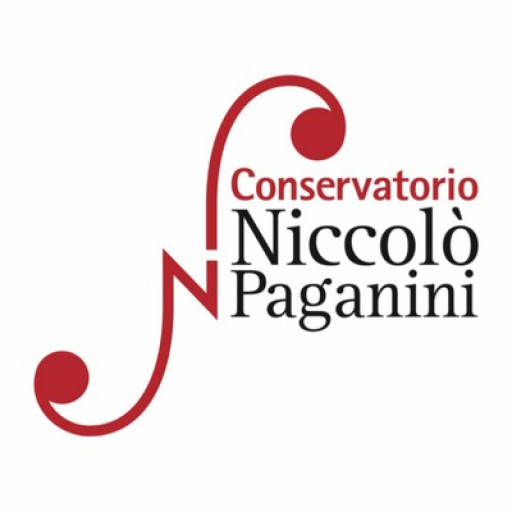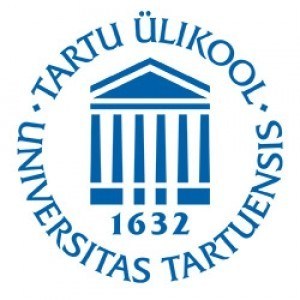Photos of university / #universityofleeds
Advertisement
***Ore deposits and mining options available***
The course provides training in all aspects of applied structural geology and seismic techniques for direct entry into the hydrocarbons or mining industries, with starting salaries of £30-35k per annum, or alternatively into PhD research.
In 2010-11 nearly 100% of students have successfully secured employment in the petroleum or mining industries or have chosen to undertake a postgraduate research degree (PhD).
What will this course give me?
You will receive advanced training in the practical application of structural geology in interpreting seismic and the principals underlying data acquisition and processing.
You will benefit from professional/research level training in structural geology and basin evolution from regional, to basin, to reservoir scale.
Fieldwork forms an integral part of the course. These courses are directly linked to learning outcomes in the classroom.
You will be expected to complete a 3 month dissertation project that promotes direct links with industry or research collaborators.
"The course is excellent, its balance is good and its material directly relevant to industry; 'world class' in its field." Dr Rod Graham, Global Advisor, HESS.
How does it differ from "Petroleum Geoscience" courses? Petroleum geoscience courses provide broad training in all aspects of petroleum geology. This course focuses on understanding the geology behind basin evolution and use of 3D and 4D thinking in geological contexts, skills that are essential for industry employment. You will gain a broad understanding of the hydrocarbon system and an appreciation of both the geological and geophysical contraints with respect to seismic interpreation and model building. This will allow you to use geophysical techniques to solve geological problems. As capable seismic interpreters you will be able to contribute in an industry role from day one.
Key Features
* The only applied structural geology MSc in the UK.
* Directly relevant to the hydrocarbons and mining industries or PhD research.
* Links structural interpretation to seismic data acquisition and processing.
* Research-led teaching with direct links to active applied research.
* Access to industry standard computing facilities and software.
* Industry or research focussed dissertations.
* Substantial amount of fieldwork that is fully integrated with class-room teaching.
* Hydrocarbon and mining module options available.
* For international students the course provides an international standard of Masters qualification in 12 months rather than 24. It also delivers focussed, advanced teaching coupled to a research project in comparison to the significantly more research-oriented US Masters.
World Class Learning and Teaching EnvironmentYou will be taught by a range of research and industry experts as well as through a series of industry-led workshops.
You will be based in the newly refurbished £23 million state-of-the-art School of Earth and Environment. It features purpose-built laboratories, dedicated MSc teaching rooms with high end computers running industry standard software and a 3D visualisation suite.
The course has excellent links with industry and professional bodies. We have weekly recruitment visits from a range of geoscience employers including BG Group, BP, ConocoPhillips, ExxonMobil, Fugro Robertson, Maersk Oil, Nexen, Shell and many others. We also provide further opportunities for training, conference attendance and involvement with Student Chapters (AAPG, EAGE, SPE, SEG, PESGB).
The MSc consists of 180 credits, 120 of which are the taught component and 60 associated with the dissertation. The programme commences at the end of September each year and is of twelve months duration; 9 months of taught classes followed by three months of independent research and dissertation writing.
The arrangements vary between modules with some being spread over both semesters, while others are intensive and of a short duration. Teaching methods also vary depending upon topic with some modules being very practical based, while others are tutorial or lecture based. Regardless of method, all teaching material is supported by substantial online learning material. Given the variety of learning outcomes and teaching methods, assessments differ between modules but generally consist of a combination of presentations, assessed practicals and/or formal examinations.
The modules are devised to develop both advanced understanding of key topics (including large scale tectonics, basin evolution and reservoir scale deformation) and technical ability through the use of industry leading software.
Fieldwork
Fieldwork forms an integral part of the course and the course trips, including international fieldwork are directly linked to learning outcomes in the classroom. Field trips include:
* Introductory field day to Ingleton, North Yorkshire.
* 6 day trip to the South West of England. We consider both extensional and compressional tectonics, basin-scale to fault to reservoir scale deformation, fault seal analysis, kinematic and geometric fault evolution, restorations, 3D fault analysis.
* 1 day trip to Whitley Bay. You will gain an insight into the limitations of seismic acquisition.
* 12 day tip to the Central Spanish Pyrenees. This trip forms the culmination of the taught course and serves as a summary trip where we pull together elements from the entire course. We consider regional scale orogenic deformation through to basin scale to fracture scale. We also consider the influence of sediment-structure interaction in basin evolution and tie outcrop scale observations with seismic examples.
Transferable / Professional skills
The taught Msc programme is not simply about increasing knowledge and technical ability. It is as important that as a student you will develop skills and a professionalism that will make you employable.
Course Modules
The first 2 weeks of the course consist predominantly of a review of the fundamentals of structural geology, maps, and mathematics. This is to ensure that all students have a common starting level prior to the more advanced courses.
Structural Geology Project and Dissertation - Often considered the highlight of the year. Students undertake a four month independent research project, which can either be 'in-house', or involve secondment at, or training with, an industry partner. At the end of the four month period students produce a written report, and an oral presentation on their results. If the research was done in collaboration with an industry partner then a member of the company will usually attend the presentation. We can also offer more research aligned projects if you are intending to go onto PhD research.
3D Structure: Techniques and Visualisation - This module teaches students the intermediate to advanced structural skills required throughout the rest of the course. The first part of the module covers analysis of stereographic data, reading of geological maps and construction of accurate cross sections. It then uses a number of exercises, including restorations, to develop 3D and 4D thinking of complex geological settings, initially using paper-based exercises but latterly within the workstation environment.
Applied Structural Models - In order to understand structural deformation in outcrop or sub-surface data it is essential to understand the most recent concepts on deformation. This module outlines current understanding of structural models, how faults grow and interact and how faulting interacts with folding. These models are applied to the interpretation, and appraisal of uncertainty, in sub-surface data. A key element of this module is the integration of class based teaching with field examples of both compressional and extensional systems.
Applied Geodynamics and Basin Evolution - This module provides an understanding of large scale tectonics and geodynamic processes in both extensional and compressional systems. The first part focuses on lithospheric extension, models of continental extension, influence of stretching factors, and implications on heat flow. The second part, which is primarily taught in the field in the Spanish Pyrenees, considers the influence of lithospheric compression on basin evolution. It focuses on using field observations to address larger scale processes.
Geomechanics and Fault modelling - The impact of stress, deformation and brittle failure of rocks in the upper crust is covered, along with how these impact fracture systems, rock strength and failure, and mirco-scale fault deformation using the Scanning Electron Microscope. The second part of the module applies industry-standard 3D modelling/visualisation (Petrel) package to building structural models and considered relationship between model horizons and faults. This component is taught by Rock Deformation Research and uses their latest Petrel Plug-ins.
Petrophysics and Geophysical Reservoir Evaluation - A comprehensive introduction to the acquisition and application of wireline logs, vertical seismic profiles and Q (attenuation), Gassman's equations to assess variations in reservoir fill during production (fluid substitution) and the uses of seismic attributes (eg AVO) in time lapse 4D seismic analysis of hydrocarbon reservoirs. At the end of the course students will understand the fundamentals of petrophysics and its use in the analysis of cores and geophysical well logs for reservoir characterisation and hydrocarbon assessment.
Seismic Reflection Methods - An introduction to the acquisition and processing of seismic data. Explains how choices are made at each stage of producing seismic data, from planning the acquisition geometry and source to what type of processing is applied and how these impact the final product. At the end of the course students should be able to read a processing report and understand the implications of its contents for interpreting data.
Seismic Reflection Interpretation and Sequence Stratigraphy - This module provides a solid grounding in the principles of both 2D and 3D seismic interpretation, both on paper and workstation. Emphasis is placed on good practice when approaching seismic interpretation, including how to use synthetic seismograms, borehole tying, loop tying and contouring.
Hydrocarbon Option - Reservoir Structural Geology and Hydrocarbon Prospectivity of Basins This module addresses the hydrocarbon system at reservoir and basin scales. At the reservoir scale the impact of fault seal and fluid flow are considered while also including an overview of petroleum geology including the geological controls on hydrocarbon prospectivity, the petroleum system and reserve evaluation and risk analysis.
Mining Option - Ore Deposits - This module will provide a background to ore and mineral deposits and address the principal controls on mineralisation. Practical exercises address the use of potential field data in mineral exploration and quantitative prediction of ore body shape and size and location in 3-Dimensions.
Programme Specific Scholarships
We appreciate that funding to undertake a postgraduate degree is a significant issue for individual students. Based on its long history of turning out well qualified graduates, the MSc Structural Geology with Geophysics programme at Leeds has strong company links which offer a number of studentships available for UK/EU students (full and partial awards).
If you have submitted a complete application, you are eligible to apply for an Industry scholarship. Please visit the Industry scholarship website for the application form and to apply.
Eligible applicants will be invited to an interview day, this is usually held in March - date tbc for 2015.
Postgraduate Scholarships at Leeds
Visit the University of Leeds Scholarship Web Page:
Other Funding Sources
Visit the Petroleum Exploration Society of Great Britain (PESGB) website for information regarding full and partial scholarship awards. Applications should be made directly to PESGB.
Those considering funding the course themselves should consider that graduates have a high success rate in gaining (generally well remunerated) employment.
Students in the past have secured funding through a career development loan, for details visit the UK Government Website










